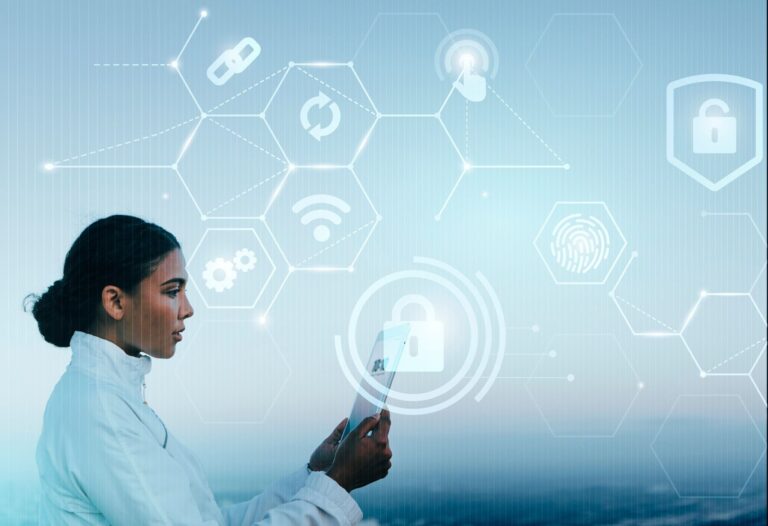As Africa’s digital transformation accelerates, cybercriminals are also evolving — now armed with artificial intelligence (AI). Across the continent, governments, banks, and private firms are reporting a wave of AI-powered phishing, deepfake scams, and ransomware attacks. In Ghana, where fintech adoption is booming and digital services continue to expand, cybersecurity has never been more critical.
AI-Driven Cyber Threats Are Getting Smarter
Cybersecurity experts say the use of AI in cybercrime has changed the game. Attackers can now generate convincing fake voices, clone executives’ emails, or mimic legitimate websites with precision.
Recent industry reports show that AI-enabled phishing campaigns in Africa have tripled since 2024. Unlike traditional attacks that rely on poor grammar or generic templates, these new waves are contextual — some even written in Ghanaian Pidgin or Twi, making them harder to spot.
In one case reported by Accra-based fintech executives, fraudsters used voice-cloning technology to impersonate a senior manager, authorizing a fund transfer that nearly succeeded. Similar incidents have surfaced in Nigeria, Kenya, and South Africa.
Why Africa — and Ghana — Are Vulnerable
Africa’s rapid digitalization, while transformative, comes with gaps in security investment and awareness.
Ghana’s digital-public-service platforms and online payment systems are growing fast, but cyber hygiene remains inconsistent across institutions. Many small businesses rely on outdated systems without multi-factor authentication, leaving them open to breaches.
According to Ghana’s Ministry of Communications and Digitalisation, the country faces over 5,000 cyberattack attempts weekly, ranging from basic phishing to coordinated ransomware campaigns.
Experts attribute this to three major factors:
- Skills shortage: Africa is estimated to have a shortfall of over 500,000 cybersecurity professionals.
- Low security budgets: Many organizations still treat cybersecurity as a cost center, not a strategic investment.
- Weak collaboration: Cross-border intelligence sharing and local-private-sector partnerships are still developing.
The Financial and Political Stakes
The financial sector has become the prime target. As Ghana’s fintech ecosystem grows — with mobile money transactions surpassing ₵1 trillion in 2024 — cybercriminals are following the money trail.
Banks are facing sophisticated ransomware, identity theft, and card-skimming schemes, while fintech startups are struggling to balance rapid innovation with compliance requirements.
Cyberattacks are also intersecting with political and social risks. As Ghana prepares for the next election cycle, digital disinformation and data manipulation are emerging threats. AI can now generate fake videos or doctored statements capable of influencing public opinion — a danger that has already rattled democracies worldwide.
Africa’s Response: Building Defences and Sovereignty
Governments across Africa are beginning to act. Nigeria, Kenya, and South Africa have all updated their national cybersecurity frameworks. Ghana’s Cyber Security Authority (CSA) has stepped up public awareness campaigns and compliance inspections, and the National Cyber Security Centre continues to strengthen response protocols.
At the continental level, the African Union’s Convention on Cyber Security and Data Protection (Malabo Convention) is pushing for harmonized standards. Ghana has been a vocal supporter, calling for regional cooperation in intelligence sharing and digital-forensics capabilities.

AI vs. AI: The Next Frontier
Interestingly, the same technology that empowers attackers can also protect defenders.
Ghanaian tech startups are beginning to deploy AI-driven security systems capable of detecting anomalies, analysing network traffic, and predicting breaches before they occur.
In partnership with telecom companies, these innovations could help identify threats faster than humans alone ever could.
Still, experts warn that relying solely on technology is not enough. “Cybersecurity is as much about people and policies as it is about software,” says Dr. Albert Antwi-Boasiako, Director-General of Ghana’s CSA. “We need a culture of vigilance — from boardrooms to classrooms.”
What Individuals and Businesses Can Do
For businesses:
- Implement Zero-Trust architecture — verify every request, even from internal users.
- Train staff to spot deepfakes and phishing attempts.
- Regularly update software and backup critical data offline.
- Conduct annual cybersecurity audits.
For individuals:
- Enable multi-factor authentication on all financial accounts.
- Be cautious of unsolicited messages or calls requesting credentials.
- Verify any “official” voice message or video before responding.
The Road Ahead
Africa’s cybersecurity challenge is not insurmountable. With the right mix of investment, education, and innovation, the continent can turn vulnerability into opportunity. Ghana, with its rapidly expanding digital economy and strong regulatory foundation, is well-positioned to lead that charge.
AI may have given cybercriminals new tools, but it has also armed defenders with smarter shields. The tipping point is now — and how Ghana and the continent respond will determine whether the digital future remains secure, inclusive, and truly African-led.























